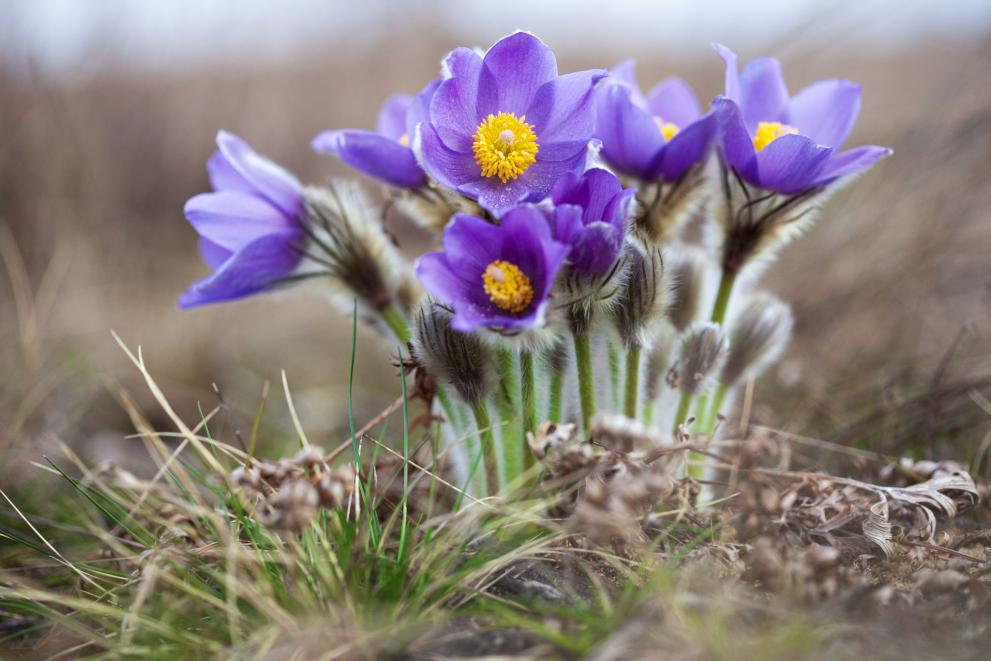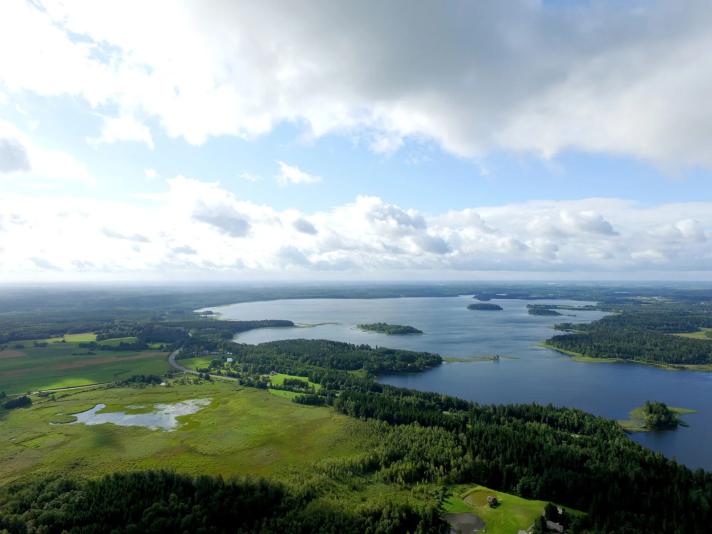
Right from its launch in 2018, the EUR 17 million LIFE Integrated Project PAF-NATURALIT in Lithuania set out - as its website makes clear - to dispel the myth that “successful protection of natural values is possible only by stopping and limiting human economic activity.”
‘There’s a focus on quick money, and the other benefits provided by forests are sometimes forgotten,’ says Professor Gediminas Brazaitis, an expert working with PAF-NATURALIT on the conservation of ancient oak forests. ‘In the long term, the financial benefits can be greater than if the timber is sold now.’
Elsewhere in Lithuania, however, a different challenge presented itself: an abundance of trees. In the Dzūkija National Park, for example, the project cut down a man-made plantation forest to open up 13 hectares of precious continental dunes and open sandy areas. Already rare insects, plants and birds are making their way back to the area - and it’s attracting more visitors than ever before.
Lithuania is home to 54 types of natural habitats and 106 species of EU importance, and more than 40 species of EU importance that require strict protection. But protected areas are often still viewed as a hinderance to economic activity, with not enough attention paid to the benefits. PAF-NATURALIT shows how restoring forests, sand dunes, wetlands, soil and wildlife is a win for nature and a win for Lithuania’s economy.
A 2020 study, for example, showed economic benefits of Natura 2000 protected areas in Lithuania far outweigh the direct costs. The annual value of mushrooms and berries grown in protected forests, for example, is more than EUR 7.6 million. Visitors to protected areas generate another EUR 30 million.
According to the study, the total socio-economic benefit of the country’s Natura 2000 network is a phenomenal EUR 194 million each year - compared to just EUR 10 million in support costs. As project leader Birutė Valatkienė observed at the report launch, ‘It is important to have financially based arguments in future political debates.’
Lithuania boasts 624 designated Natura 2000 sites covering some 12 percent of its land and 21 percent of its marine territory. Overall, however, the country is well short of the EU target of 30 percent protected areas by 2030.
In line with the #ForOurPlanet campaign - launched in 2022 and now in its second season - the project is “Encouraging citizens to take action for our planet”. In a win for both nature and people, PAF-NATURALIT has proved a hit with volunteers wanting to get involved. In 2023, more than one thousand volunteers worked at the Curonian Spit National Park alone. This year, the project has created an interactive map where citizens can find volunteering opportunities near to their homes at a time and place to suit them.
‘At first glance, volunteering and nature may not seem like a very traditional combination,’ says Birutė Valatkienė. ‘But by volunteering in protected areas, people not only contribute to preserving our iconic natural landscapes but get to try all sorts of unusual activities.’
With PAF-NATURALIT set to run until the end of 2027, there’s plenty more work to be done, and the project is under no illusions as to the challenges. ‘Change requires thought,’ says Professor Brazaitis. ‘We can preserve or even restore a habitat or species range, perhaps an entire marsh or dune. But are such cases enough to ensure the survival of sensitive species and the functioning of endangered ecosystems?’
As well as targeting the EU Directives on birds, habitats and water, LIFE-NATURALIT helps support the 2030 biodiversity strategy, the guidance on managing Natura 2000 sites, and the European Green Deal.
Details
- Publication date
- 12 March 2024
- Author
- European Climate, Infrastructure and Environment Executive Agency


